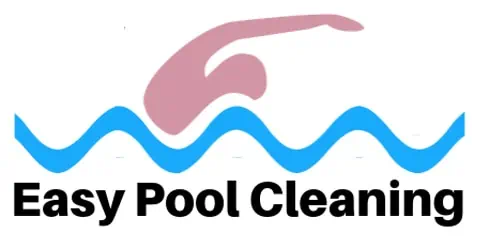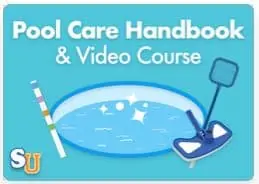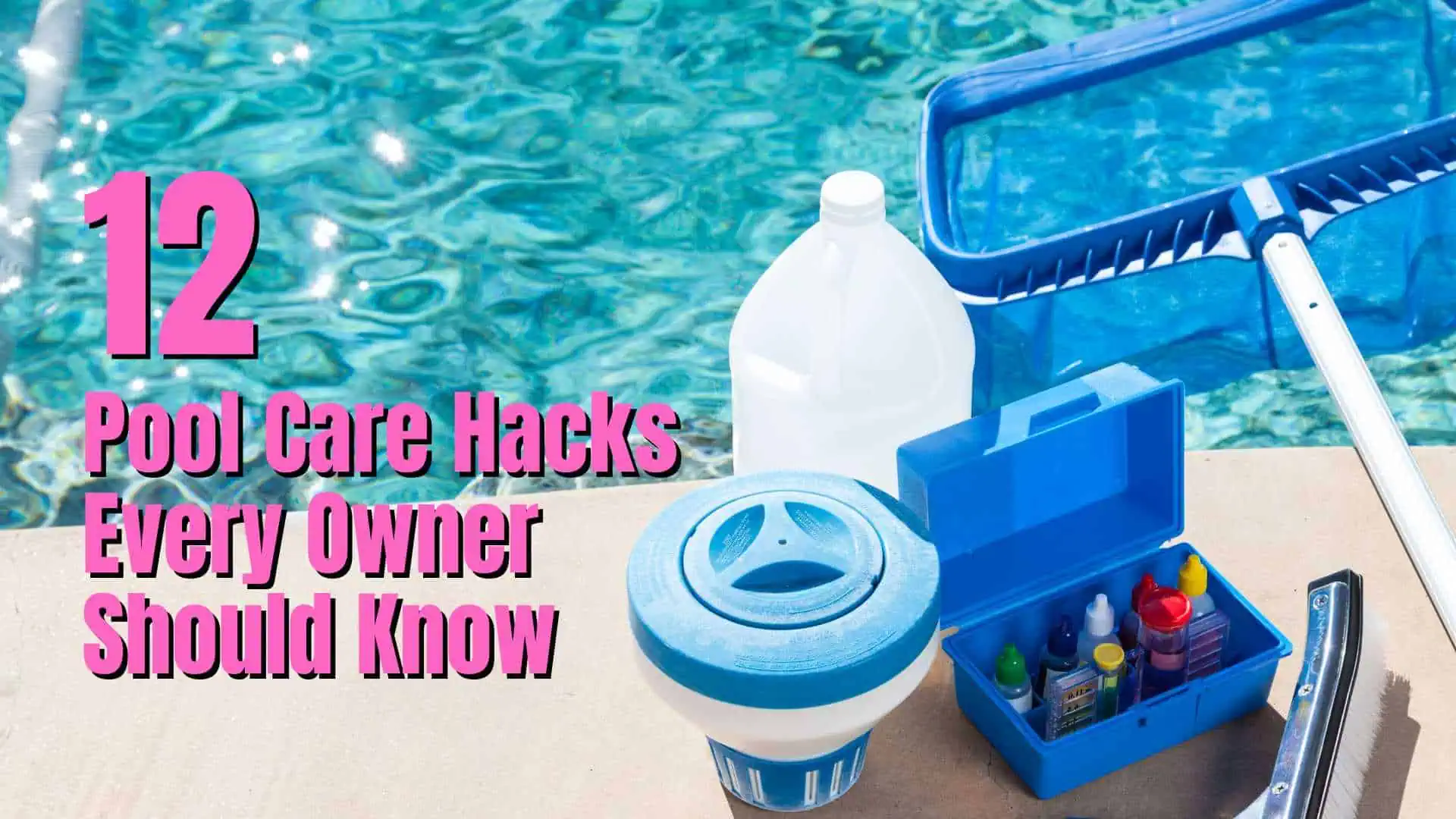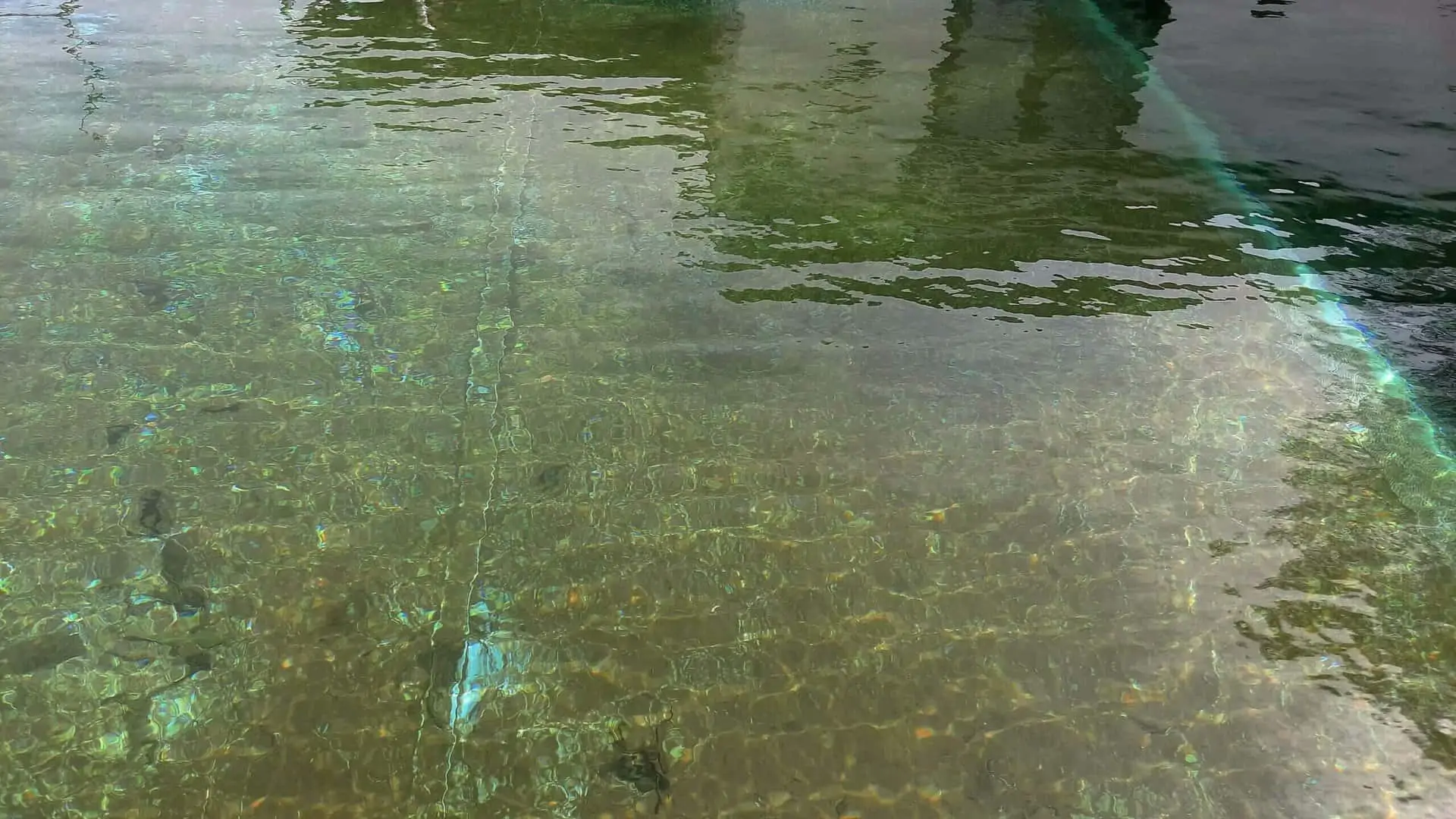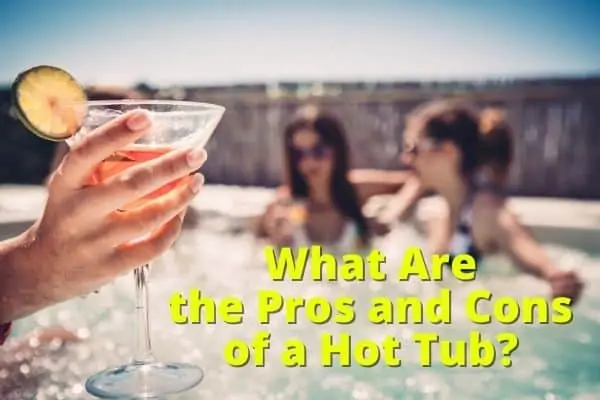What happens if your pool pump breaks and you can’t fix it, or it breaks over a holiday when no techs can make a house call? Or perhaps you have a power outage that will last a few days.
How long can your pool go without a pump and still be ok to swim in?
A pool can only go a short time without a pump, perhaps up to a week, and still be safe to swim in, provided you keep the chlorine and other levels up. This time will vary depending on things such as temperature, the weather and how clean the pool was when the pump stopped etc.
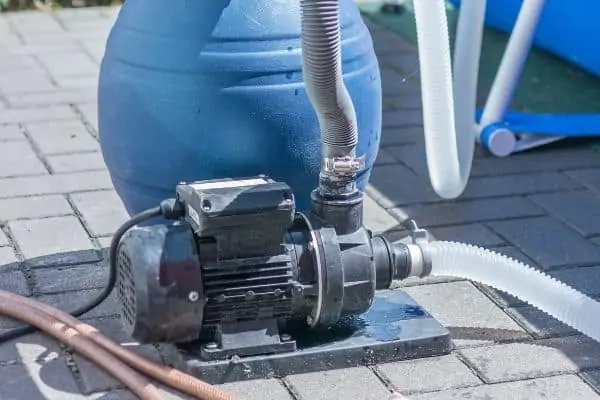

How long can my pool go without a pump?
If it is likely to be more than a week before the pump can be fixed or replaced, then you should stop swimming. You should maintain the chemical balance, as this will minimize the work needed after the pump is working again.
Generally, it is not a big problem if it takes some time to be fixed or replaced, provided you will not be swimming in it after a week, and you certainly shouldn’t need to empty the pool and refill once the pump is restored.
After all, in many cold climates, pools are kept full or emptied a little when they are closed for the winter, and the pump is switched off for months. When the pool is reopened in the spring, even if it has gone green over winter, it only takes a week or so of chlorine treatment and running the filter to restore the health of the water.
What happens to a pool when the pump is broken?
A pool pump is an integral part of the system that helps keep your pool clean and clear, and it is normal to run the pool pump for 6 hours a day or more. But what happens to a pool when the pump stops working?
When the pump stops working, then:
- The water no longer passes through the filter, so dirt, dust and other debris are not filtered out
- The skimmers stop working, so any floating debris, such as leaves and bugs, are not removed from the surface of the water
- You will be unable to vacuum the pool manually, which means it will get dirty quickly
- The pool chemicals are no longer circulated around the pool
- With little or no movement in the water, algae will find it easier to grow

How to clean a pool without a pump
These are some of the things that you can do if you want to know how to keep a pool clean without a pump and filter in the short term until you can get your swimming pool pump fixed or replaced:
- Brush the sides of the pool more frequently than usual, perhaps every day, to prevent algae build-up.
- Skim the top of the water daily, or even more frequently, to remove bugs, leaves, bird droppings, and other debris.
- Shock your pool with pool shock to ensure the chlorine levels are correct. If you add liquid chlorine, it will help it mix with the pool water more efficiently. You will probably need to add more chlorine than you would typically use. You must stir the water to ensure it is distributed throughout the pool.
- Test the chemical stability of your pool water daily while the pool pump is not running.
- If you have a robotic pool cleaner, use it daily while the pool pump is not running. Not only will it clean any debris in the pool, but most robotic pool cleaners move a considerable amount of water as they work, which will help to distribute chemicals around the pool.
Doing all these things can help keep your pool reasonably clean in the short term without a pump.
How to circulate pool water without a pump
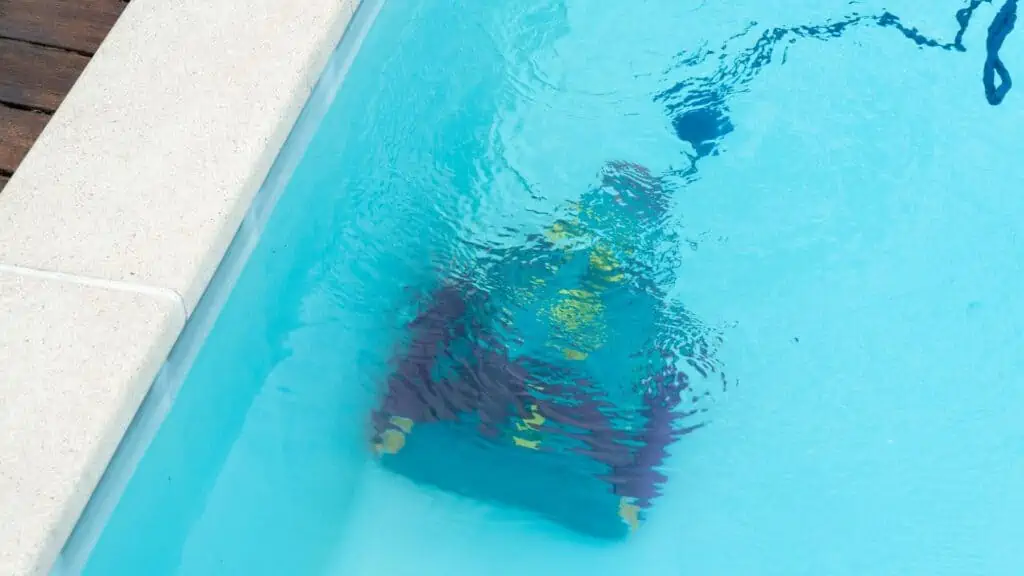
If your pool pump has broken, the water in your pool will sit there without moving, which is certainly not good for the water quality. Then, when you add chemicals, they will not get mixed around the pool as they would normally.
If it will be more than a few days before your pool pump is fixed or replaced, then you can try these methods to help circulate the water, at least to some extent.
Submersible pump
This is probably the most effective method to help circulate the water. Just connect a hose to the submersible pump, drop it into the pool’s deep end, and arrange the other end of the hose so that the water will flow just above the surface in the shallow end.
This way, water will be pulled from the bottom of the deep end and back into the shallow end, causing a water flow. You can move the pump and the hose around regularly to achieve better water flow.
Robotic pool cleaner
If you have a robotic pool cleaner, I would recommend running it every day as not only will it clean the pool, of course, but it will also go a long way to help circulate the water while the pool pump is broken.
This is because most robotic pool cleaner pumps are quite powerful, moving a substantial amount of water as they clean.
People power
If you have neither a submersible pump nor a robotic pool cleaner, do whatever you can to move the water around, particularly if you add chemicals that need to be dispersed.
This can include swishing the water with a pool brush, a clean garden shovel or spade or if you have one, a paddle from a canoe, kayak etc. This sounds like hard work, so it is not something you would want to do very often.
Is it safe to swim in a pool with a broken pump?
Ideally, I would suggest waiting until everything is fixed, but if you are experiencing a big heat wave, perhaps that is something you or your family may find unacceptable.
It is safe to swim in the short term, perhaps for a week, provided you keep the chlorine levels up using chlorine shock in liquid or powder form. Make sure you dissolve the powder in water and then walk around the pool pouring it in, trying to distribute it as evenly as possible.
The other pool water levels should also be monitored using test strips or other methods to ensure the pH, alkalinity, etc, are correct, with chemicals added where necessary.
Read my full article – Do you run the pool pump while swimming?
Is It OK to Turn Pool Pump Off While On Vacation
Many pool owners ask, “Is it okay to turn the pool pump off while on vacation?” Keeping the pool pump running is generally recommended, even when individuals are on vacation.
Pool pumps play a crucial role in maintaining water circulation, filtration, and chemical distribution, which contribute to the overall cleanliness and clarity of the pool. Turning off the pump for an extended period can lead to stagnant water, increased debris accumulation, and potential algae growth.
Pool Care Handbook and Video Course
When I bought my house with a swimming pool, I knew absolutely nothing about pool care. I just winged it for a while, making many mistakes along the way.
Fortunately, I was recommended Swim University’s Pool Care Handbook and Video Course. I bought it and it was an absolute game-changer.
It was the best money I spent that year. I learned everything from basic cleaning to advanced troubleshooting. Swim University offers a no-quibble refund policy too so what do you have to lose?
Consider replacing it with a variable-speed pump
If the diagnosis is that your pool pump needs to be replaced then you should take that opportunity to consider fitting a variable-speed pool pump as a replacement.
Although they are more expensive, having a variable-speed pool pump will save you money in the long run since running slower will consume less electricity. In many instances, savings are more than 50%, so even with the initial increased cost of buying the pump, it is easy to see that this cost will soon be recovered.
The generally accepted best variable speed pump is the Pentair 011028 IntelliFlo Variable Speed Pool Pump, which can save up to 90% over standard pumps. It is quite a significant investment but will pay for itself over time.
Also read: how long should I run my pool pump
Summary
What if you face the challenge of having no pump to circulate and filter the water? While a pool pump is crucial for optimal circulation and filtration, keeping a pool clean and safe without one is possible.
Following the steps above, you can enjoy a refreshing swim in a well-maintained pool, even without a pump, for a while. However, investing in a new pool pump as soon as possible is recommended to ensure consistent water circulation and efficient pool maintenance.
Frequently Asked Questions
Can you maintain a pool without a pump?
It is possible to maintain a pool without a pump if broken, but only in the short term.
Can you put chlorine tablets in a pool without a filter?
You can still use chlorine tablets, but without the water circulating, they will dissolve very slowly, so you would do better to use chlorine granules (pre-mixed with water in a bucket) or liquid chlorine.
Can I leave my pool pump off for a few days?
You can leave the pump off for a few days, but unless there is a reason why you cannot run it, you would be better advised to leave it running to prevent any problems with water quality.
Should I turn my pool pump off when I go on vacation?
Unless you are prepared to return to a pool that has turned green or some other water quality problems, it would be better to let the pump run while you are away, even for a shorter period than normal.
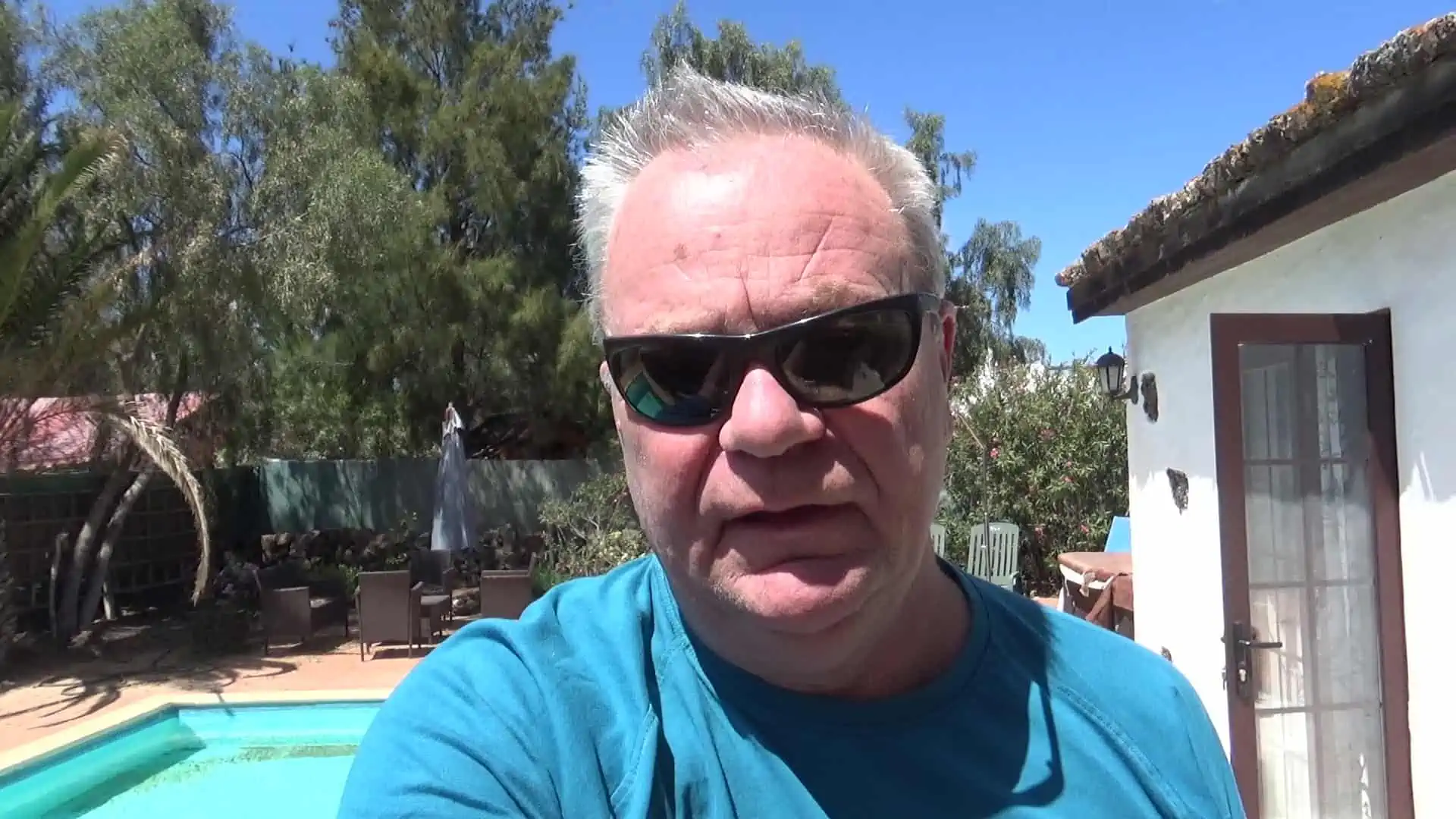
I have had hot tubs for over 20 years and a pool for the last 10 years. I had to learn how to clean, maintain and fix them the hard way. Since then I have helped many friends and neighbors with their pools and now I want to share everything I have learned with you. About Me
